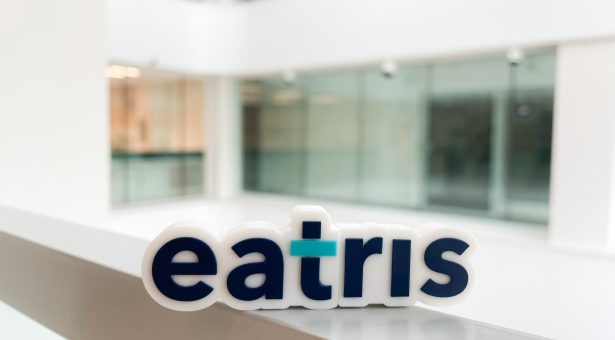PIPS: Going from lab bench to strategic level science

Keanu Walsham, an NRPDTP student based at the UEA, wanted to use his PIPS to gain exposure to career options outside of academia so applied for a PIPS placement with the European Infrastructure for Translational Medicine: EATRIS-ERIC, after seeing it promoted in the PIPS newsletter.
Keanu did his placement during his third year and found this timing to work well for him as he found it gave him a chance to have a break from his PhD work and prepare mentally for his 4th year.
The internship involved analysing and interpreting data, making marketing material, writing up reports and evaluating the host business. The emphasis of the project was reviewing the data platforms and systems used by different institutes (‘nodes’ such as hospitals, biotech companies, pharmaceutical businesses, and research institutes) across 14 European countries to identify core key standards and opportunities for sharing data, and to write strategic documents based on the findings. Keanu found the varied nature of the internship refreshing and got to attend some of the HQ meetings (Amsterdam, The Netherlands) to learn more about the wider remit of the institute.
Keanu spent a lot of time researching solutions used by other tech spaces to see what might work. The first 3 weeks of the placement were spent reading about personalised medicine and understanding the remit of EATRIS-ERIC. At the end of this he had to give an online presentation to about 40 people including organisation heads about his findings and how accessible he found information about their work. Towards the end of internship, he translated his talk into a slide deck of recommendations for how EATRIS could better position themselves to serve both their community and the wider Translational Medicine landscape. This has fed directly into the 2023-26 strategic plan of EATRIS. Keanu felt proud of the positive feedback he got about this piece of work and his achievement at generating a useful ‘product’.
Keanu felt his ability to analyse information from a different scientific context and interpret the results and draw conclusions improved. This has given him confidence in his ability to transfer to a new scientific area post PhD. Over the 12-week period he generated documents including presentations and word reports. He had some experience from his PhD of writing to different audiences, so he was aware of producing documents using ‘general language’ conveying knowledge understandable to all potential readers.
Keanu felt that his time-management skills improved during the internship and recognised that he can be more productive and focused when working from home without the distractions of the lab environment. He had several deliverables to meet during the 3 months and met weekly with his manager to review progress. Keanu liked having the independence and freedom to pursue the deliverables in the way he wanted and liked having ownership for his writing, taking pride and care to produce the end result.
At the end of the internship, Keanu was able to use some of his creative communication skills to develop a banner and leaflets showcasing the data focus of the institute to prospective users at a conference. He also developed a webpage to highlight the service, taking the initiative to design content for a specific page to describe the data activities of EATRIS: http://eatris.eu/data/.
Keanu gained many skills from the placement. “I gained skills in communication, both written and verbal, data analysis and interpretation which I think will be of great value to my future career. I really enjoyed having to learn about a brand-new field and evaluating challenges within this field”, reflects Keanu. “I had to write reports and give presentations which would be seen by experts in a brand new field to me, which greatly improved my self-confidence”, he adds.
Keanu recognised that ‘being thrown into the deep end’ with this new employment environment had been valuable to show he can adapt to new situations. He felt positively supported by his line-manager and identified how he might like to be managed in a future job. As a result, Keanu felt more confident coming back into final year of his PhD to make his own decisions including his hours of work.
Keanu found his PIPS a very positive experience. “I learned that there is much more to research than just sitting in a lab or an office. I aspire to learn more about how I can impact research at a strategic level” he concludes. He recommends that future PIPS student do something completely different to your PhD and use this opportunity to push what sort of career you want to have after you finish your research.
Gary Saunders, Keanu’s supervisor during the placement was also extremely positive about the internship. “Keanu was an excellent intern, and it was a pleasure to have him as part of EATRIS-ERIC. I am really pleased with the output of this internship; we have updated website content and have analysed a lot of survey data from our Nodes relating to their data activities. From our conversations I know this has opened up potential avenues of career-path for Keanu, and I look forward to working with him again.”
